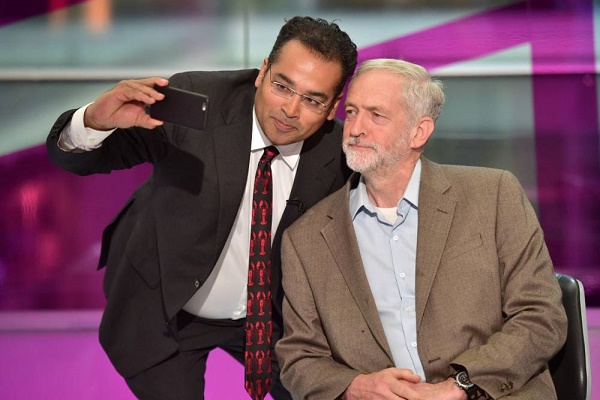
Corbynmania shouldn’t have happened and doesn’t make any sense. Or at least, that’s the consensus view of the political class. Jeremy Corbyn's support doesn’t slot into the Westminster reality tunnel, and the only way they can interpret it is to see it as some horrible historical throwback. To Westminster, it is as if the digitally-raised twenty-first century networked generation has somehow come to view the world through the eyes of a union leader from Carry On At Your Convenience.
Things that make no sense at all are useful clues that reveal blind spots in our worldview. Westminster’s current confusion is a great example of this. It demonstrates their failure to grasp a deep cultural shift. This is a generation of politicians that use the individual as the central focus of thought. This is the heart of Thatcherism; policy is made for individuals and their desires and aspirations, for “there is no such thing as society: There are individual men and women, and there are families.”
But the digitally-raised generation do not understand themselves as isolated individuals. They see that concept as too flawed and lacking in context to explain anything. Instead, they understand themselves as part of a network, complete with the wider connections, reputation and power that represents.
As a test to see which side of this cultural shift you lie, think about somebody taking a selfie. If you see this as an individual taking a photo of themselves for reasons of vanity and narcissism, then you’re an individualist. But if you see that selfie as someone smiling at their friends, an attempt to strengthen social bonds, then you’re thinking like the millennial generation. From this perspective thinking about the photo without that wider context is a dumb way to see the world, because it fails to explain what is really happening.
The rise of individualism is the central story of my book Stranger Than We Can Imagine: Making Sense of the Twentieth Century. It emerged from the collapse of the hierarchical world of Emperors, Tsars and Kaisers, when to understand ourselves we had to know our place. Individualism was wild, liberating, contradictory and absolutely necessary.
But it was just a phase. It was not the end point of the evolution of out psyches. We now know that an individual is too simple a concept to understand ourselves biologically, socially, emotionally, psychologically or culturally. It is only advertising and politics that still cling to the idea.
This is not to say that Corbyn’s worldview is an exact match for that of the digital generation. He is arguably too “top down” in his thinking, and overconfident in the credibility of the state. But there is healthy crossover between his collectivist ideas and the network worldview, and an overriding sense that he’s not just in this for himself, and that gives the young hope. After all, who else would they vote for? The politics of individualism leads to situations like our current housing market. It is not hard to understand their lack of enthusiasm for it.
There is a demographic lag at play here, but individualism will only dwindle from here on in. Political upheavals from Occupy to Corbymania, and the success of the SNP, all show how the millennial generation understand themselves using a fundamentally different model to those raised in the 20th century, and who still unconsciously use individualism as the basis of their thought. It may take a few more “inexplicable” political shocks before the Westminster consensus grasps what has happened, but the “historical throwbacks” are not those who support Jeremy Corbyn. It is those that are bewildered.